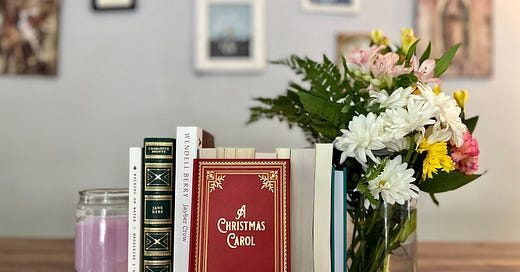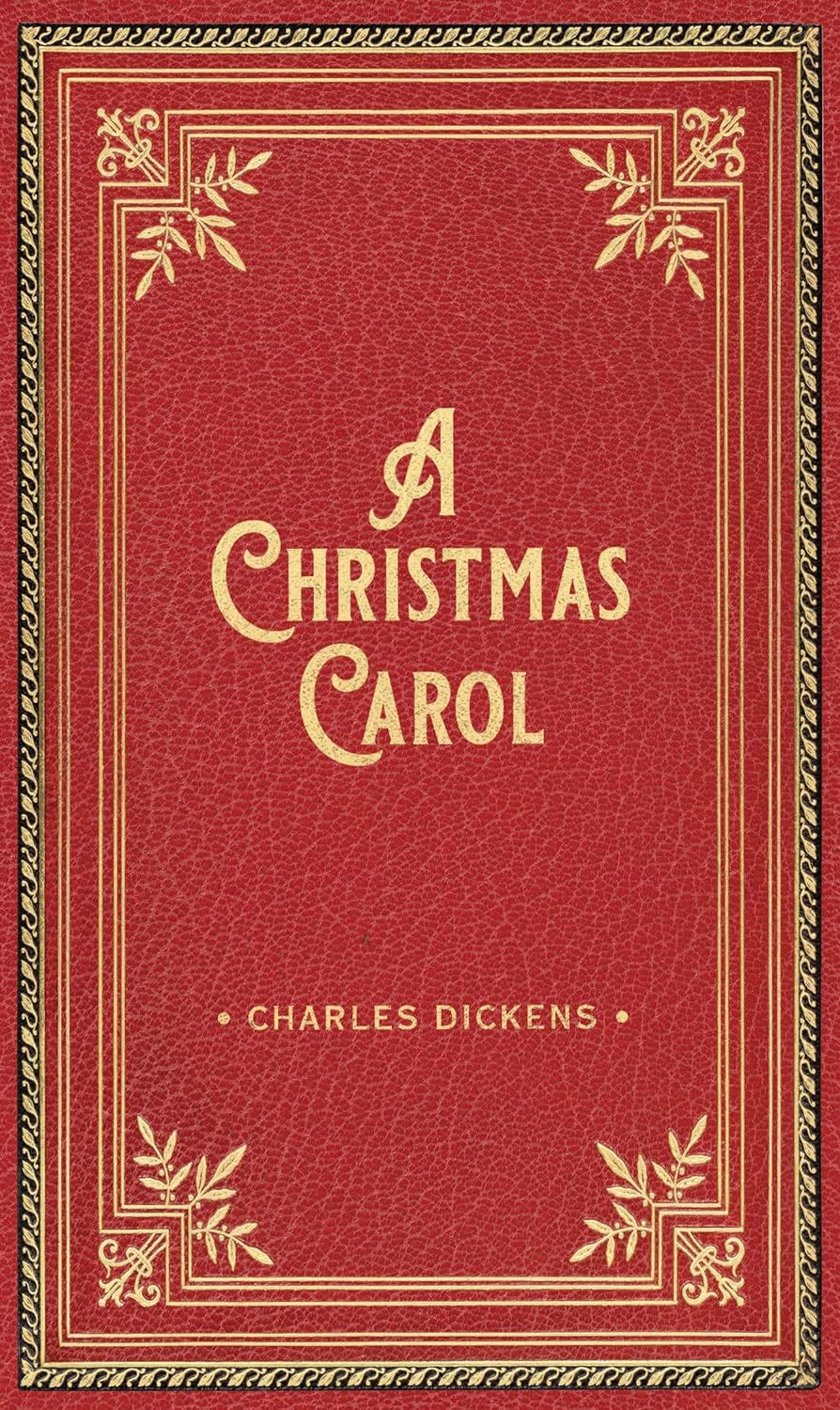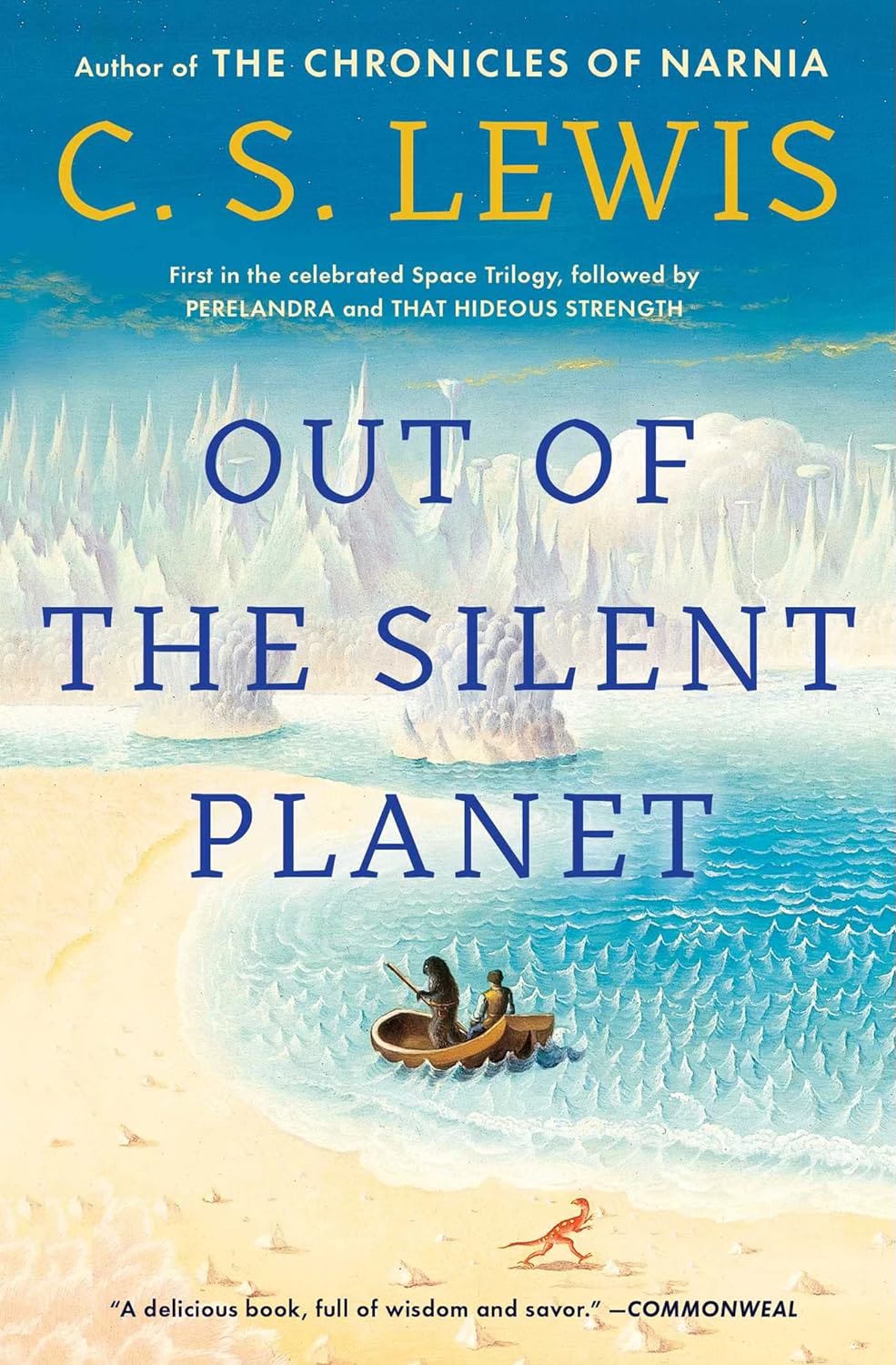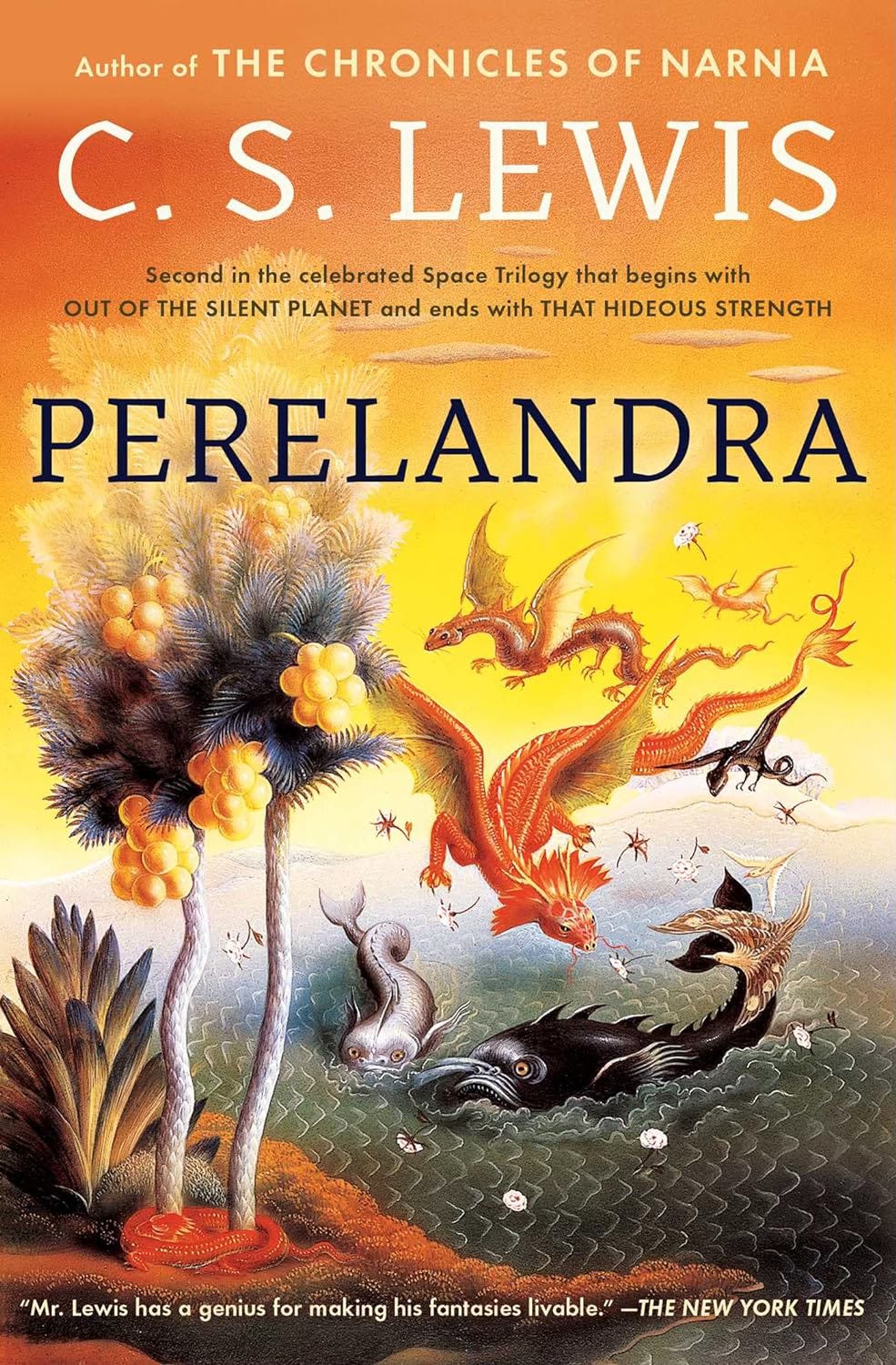Welcome to Reading Revisited, a place for friends to enjoy some good old-fashioned book chat while revisiting the truth, beauty, and goodness we’ve found in our favorite books.
Hello, Readers!
I hope you are all having a wonderful week! I am happy to report that after an extremely mild autumn, winter has officially come upon us mid-westerners. I will admit publicly that as a southern-transplant to Chicagoland, I still take a childish joy at the first snow every year, and it felt very satisfying to reflect on A Christmas Carol while watching those first tiny flakes fall.
We have made it through the third and longest of our five chapters, and I found myself just as delighted as always in journeying with the Ghost of Christmas Present! This is also the section in which I see Dickens’ hand most recognizably in his writing - the humor, style of characterization, added bit of melodrama, and his forgivable bit of soapboxing, feels most characteristic of his other work in my humble opinion.
Here are some things I noticed in this section:
This stave opens with Scrooge, despite his experience with the Ghost of Christmas Past, still desperate to remain invulnerable:
“he wished to challenge the Spirit on the moment of its appearance, and did not wish to be taken by surprise, and made nervous.” (p. 50)
The Ghost of Christmas present does not, like the former spirits, attend Scrooge in his chamber. He does not even summon Scrooge to himself. Rather, he waits until Scrooge is on the verge of entering his presence to address him at all. Scrooge, meanwhile, waits passively for an hour before realizing that in his anxious waiting for a looked-for event, he has failed to take note of the strange light which has shone on his bed since the chiming of the hour.
Just as the former ghost in its strange, often changing and unpredictable shape, represents the way humanity relates to memory, I would argue that this ghost, the present personified, and its interactions with Scrooge can represent how humanity relates to the present moment. This is also a familiar Dickensian theme - how many people fail to attend to their present joys and blessings in their anticipation of something bigger and better to come? More on this theme later.
(At the risk of sounding a bit sentimental…this is a Victorian novel after all…I’ll point out that this idea brought to mind a line from Thornton Wilder’s character Emily from Our Town):
“Do any human beings ever realize life while they live it? — every, every minute?” (Our Town, Act III)
I love the small note, as Scrooge enters to meet the Ghost, that shows his changed demeanor:
“Scrooge entered timidly, and hung his head before this Spirit. He was not the dogged Scrooge he had been; and though the Spirit’s eyes were clear and kind, he did not like to meet them.” (p. 51)
Note that the Ghost has “more than eighteen hundred” brothers, marking the year 1843.
In the spirit of “living in the moment” I encourage everyone to go back and read the long, descriptive paragraphs that show the people shoveling snow, going to the shops, and going about their business. Not only is the prose lovely, it’s another example of the joy that exists in the seemingly ordinary moments of life.
I’ll take just a moment to point out Scrooge’s (ahem, Dickens’) accusation regarding the seventh day. He says to the spirit:
“You would deprive them of their [poor families] means of dining every seventh day, often the only on which they can be said to dine at all.” (p.58)
the Spirit answers the accusation:
“There are some upon this earth of yours who lay claim to know us, and who do their deeds of passion, pride, ill-will, hatred, envy, bigotry and selfishness in our name, who are as strange to us and all our kith and kin, as if they had never lived.” (p.58)
This little soapbox is referring to a newly passed law regulating the use of household ovens/appliances on Sundays (the only non-work day for working families). It wouldn’t be Dickens if we didn’t have at least a bit of biting social commentary after all, right? (The theme of “ignorance” here in the Ghost’s response is interesting and will come up again at the end of this chapter).
Finally, to the Cratchits! This section is truly “as good as gold” (p.s. did you know that Dickens actually coined that term with the publication of this book?!). Don’t you just feel like you’re sitting there by the fire watching the family, “brave in ribbons”, happily work to prepare the feast? The busy joy of this large family is contagious, and reminiscent of the brief glimpse Scrooge caught of Belle’s family in the previous chapter.
We see again the emphasis on children/childlikeness. Tiny Tim serves an important role both in his own family and in Scrooge’s transformation. Can there remain a dry eye when his father recalls Tiny Tim’s words:
“he hoped the people saw him in the church, because he was a cripple, and it might be pleasant to them to remember upon Christmas Day, who made lame beggars walk, and blind men see.” (p.61)
or the following line:
“Bob’s voice was tremulous when he told them this, and trembled more when he said that Tiny Tim was growing strong and hearty.” (p. 61)
The trope of the poor, but happy, large family is found often in Dickens works, and though he is known for calling out physical poverty as a grave evil, let’s not forget that he is just as quick to point out poverty of the soul as he does here in comparing Scrooge’s lonely and empty existence with the full, joyful life of the Cratchits:
“They were not a handsome family; they were not well dressed; their shoes were far from being water-proof; their clothes were scanty…But, they were happy, grateful, pleased with one another, and contended with the time; and when they faded, and looked happier yet in the bright sprinklings of the Spirit’s torch at parting, Scrooge had his eye upon them, and especially on Tiny Tim, until the last.” (p. 67)
It is here at the Cratchits that we see further into Scrooge’s transformation. A chink, perhaps, in his impenetrable armor becomes visible as he says:
“Spirit, tell me if Tiny Tim will live…Oh, no, kind Spirit! say he will be spared.” (p. 65)
Another delightful part of this section comes in the visit to the home of Fred, Scrooge’s nephew. First, one of my favorite quotes of the whole book describes Fred’s laughter:
“It is a fair, even-handed, noble adjustment of things, that while there is infection in disease and sorrow, there is nothing in the world so irresistibly contagious as laughter and good-humor.” (p. 71)
The discussion of Fred and his wife regarding Scrooge is a telling one. Here again is raised the condemnation of Scrooge the miser:
“His wealth is of no use to him. He don’t do any good with it. He don’t make himself comfortable with it.” (p. 72)
Later, when Scrooge’s niece-by-marriage plays upon the harp a song loved by little Fan, Scrooge’s sister:
“all the things that Ghost had shown him, came upon his mind; he soften more and more; and thought that if he could have listened to it often, years ago, he might have cultivated the kindness of life for his own happiness with his own hands, without resorting to the sexton’s spade that buried Jacob Marley.” (p. 75)
Finally, I love the way that Scrooge, in spite of himself, gets sucked in to the fun of the party. Even when they mock him in their games, Scrooge’s joy remains unwavering. And for the second time on this Christmas feast, Scrooge is the undeserving recipient of the honor of a toast.
The final scene here is interesting, if a little disturbing. The two “children” of mankind, which cling to the Ghost, hearken back to Scrooge’s earlier attitude regarding the poor. The neglect of Scrooge (and those like him) towards the poor is a strong indictment, and the rebuke made by the presence of these “children” is an important step in his transformation (and is also another forgivable example of Dickensian moralizing).
Themes to keep an eye on:
Continued emphasis on coldness/warmth: Many scenes in this section are vividly warm and provide a stark contrast to Scrooge’s bare, cold chambers from chapter 1. Most notably, the home of the Cratchits is seen as a haven from the outside cold:
“Sit ye down before the fire, my dear, and have a warm, Lord bless ye!” (p. 60)
We’re still seeing the theme of childlikeness run through this chapter. While describing the goings-on in the home of Fred, the narrator says:
“But they didn’t devote the whole evening to music. After a while they played at forfeits; for it is good to be children sometimes, and never better than at Christmas, when its mighty Founder was a child himself!” (p. 75)
Attending to the present: we touched earlier on the second Ghost being a personification of the present moment and Scrooge’s failure to attend to it is made clear. This also hearkens back to the words of Marley’s ghost from Stave 1:
“At this time of the rolling year, I suffer most. Why did I walk through crowds of fellow-beings with my eyes turned down, and never raise them to that blessed Star which led the Wise Men to a poor abode.” (p. 23)
This idea of a willful ignorance to the present (especially to those in need) is something that I noticed coming through loud and clear in this chapter.
I hope you have all been enjoying this read-along so far! I look forward to checking in on our last two (very) short chapters and seeing how Dickens, AKA master of gathering and tying neatly all the many threads of the story, brings this narrative to a close.
Until next time, keep revisiting the good books that enrich your life and nourish your soul.
In Case You Missed It:
What We’re Reading Now:
December
A Christmas Carol by Charles Dickens
January
Othello by William Shakespeare
February
Out of the Silent Planet AND Perelandra by C.S. Lewis
A Few Reminders:
If you are wanting to get in on the in person or virtual community please contact us!
We have turned on paid subscriptions which will allow you to support the work we are doing here as well as receive Read Along Guide PDFs each month, voice recordings of the Read Along Guides and Essays, and we are working on (printable) bookmarks for each book.
Subscribed
If you would like to make a small contribution to the work we’re doing here at Reading Revisited, we invite you to do so with the Buy (Us) a Coffee button below. We so appreciate your support!
*As always, some of the links are affiliate links. If you don’t have the books yet
and are planning to buy them, we appreciate you using the links. The few cents earned with each purchase you make after clicking links (at no extra cost to you) goes toward the time and effort it takes to keep Reading Revisited running and we appreciate it!










Loved your commentary and analysis. I am planning to re-read this book during advent.
Under the theme of childlikeness, and that magnificent quote from this chapter about the Founder having been a child Himself, I am reminded of G. K. Chesterton in Orthodoxy, describing the childlike joy of God who says to the sun each day and the moon each night, "Do it again!"